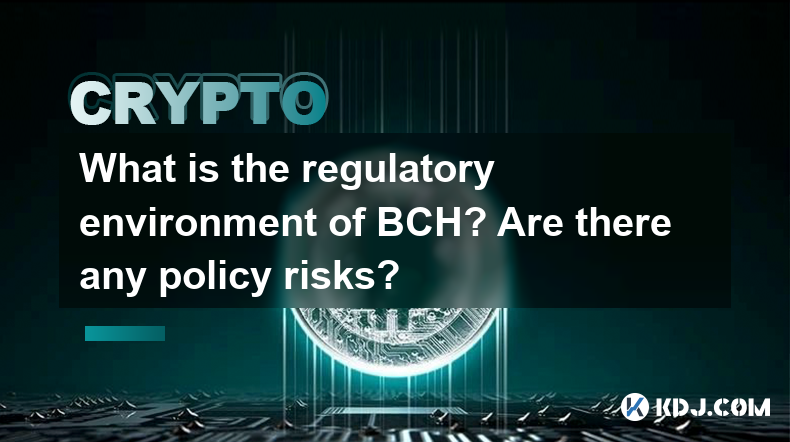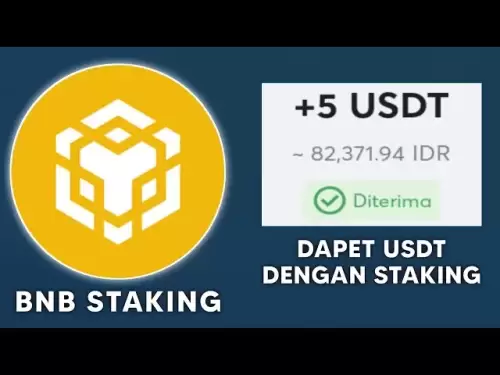-
 Bitcoin
Bitcoin $105,290.4279
4.46% -
 Ethereum
Ethereum $2,407.4233
7.73% -
 Tether USDt
Tether USDt $1.0007
0.02% -
 XRP
XRP $2.1509
6.51% -
 BNB
BNB $640.4754
3.91% -
 Solana
Solana $143.8519
8.64% -
 USDC
USDC $0.9999
0.01% -
 TRON
TRON $0.2735
3.64% -
 Dogecoin
Dogecoin $0.1631
7.35% -
 Cardano
Cardano $0.5811
7.21% -
 Hyperliquid
Hyperliquid $37.4173
5.54% -
 Sui
Sui $2.7951
13.59% -
 Bitcoin Cash
Bitcoin Cash $462.0755
1.75% -
 Chainlink
Chainlink $12.8780
10.17% -
 UNUS SED LEO
UNUS SED LEO $9.1321
1.18% -
 Stellar
Stellar $0.2454
7.05% -
 Avalanche
Avalanche $18.0314
8.62% -
 Toncoin
Toncoin $2.9114
6.55% -
 Shiba Inu
Shiba Inu $0.0...01158
9.05% -
 Litecoin
Litecoin $85.0039
5.42% -
 Hedera
Hedera $0.1519
12.92% -
 Monero
Monero $312.0572
4.18% -
 Ethena USDe
Ethena USDe $1.0007
0.03% -
 Polkadot
Polkadot $3.4168
8.50% -
 Dai
Dai $1.0000
0.00% -
 Bitget Token
Bitget Token $4.1980
4.14% -
 Uniswap
Uniswap $6.8088
8.09% -
 Pepe
Pepe $0.0...09871
10.93% -
 Pi
Pi $0.5340
3.78% -
 Aave
Aave $255.3245
11.87%
What is the regulatory environment of BCH? Are there any policy risks?
Bitcoin Cash's regulatory landscape is fragmented, with varying classifications across jurisdictions creating significant policy risks for investors and users due to inconsistent taxation, trading rules, and legal statuses.
Mar 23, 2025 at 07:36 am

Key Points:
- Bitcoin Cash (BCH) regulation varies significantly across jurisdictions, lacking a universally consistent approach.
- Regulatory uncertainty poses a significant policy risk for BCH adoption and investment.
- Different countries classify BCH differently, impacting taxation, trading, and overall legal status.
- The evolving nature of cryptocurrency regulation globally adds to the inherent policy risks.
- Understanding jurisdictional differences is crucial for navigating the BCH regulatory landscape.
What is the regulatory environment of BCH? Are there any policy risks?
Bitcoin Cash (BCH), a cryptocurrency forked from Bitcoin, exists in a complex and evolving regulatory landscape. There's no single, globally unified approach to its regulation. Instead, different countries and regions treat BCH differently, creating uncertainty and potential policy risks for users and investors.
The regulatory approach often depends on how a jurisdiction classifies BCH. Some might consider it a commodity, similar to gold or other assets, while others might view it as a currency, security, or even a utility token. This classification significantly influences the applicable laws and regulations. For example, the tax implications will vary drastically depending on whether it's considered property or currency.
In the United States, the regulatory picture is still unfolding. The Securities and Exchange Commission (SEC) and the Commodity Futures Trading Commission (CFTC) have both shown interest in regulating cryptocurrencies, but their specific stance on BCH remains somewhat ambiguous. This lack of clarity creates uncertainty for businesses operating within the BCH ecosystem.
The European Union, while working towards a comprehensive regulatory framework for cryptocurrencies under the Markets in Crypto-Assets (MiCA) regulation, has not yet explicitly defined BCH's regulatory status. This again contributes to the uncertainty surrounding its legal standing and operational framework within the EU.
Many Asian countries are also grappling with how to regulate cryptocurrencies, including BCH. Some have embraced a more restrictive approach, while others are taking a more measured, wait-and-see stance. This regional variation adds another layer of complexity to the BCH regulatory environment.
This lack of global harmonization in regulatory approaches presents substantial policy risks for BCH. The inherent volatility of the cryptocurrency market is compounded by the potential for sudden changes in regulatory frameworks.
A sudden shift in regulatory policy in a major jurisdiction could significantly impact BCH's price, trading volume, and overall market perception. Governments might introduce new taxes, restrict trading activities, or even ban BCH altogether. These are all significant risks for anyone involved in the BCH ecosystem.
Furthermore, the regulatory landscape is constantly evolving. New laws and regulations are being introduced regularly, both domestically and internationally. Keeping abreast of these changes is crucial for navigating the complex regulatory environment. Ignoring these changes can expose individuals and businesses to legal and financial risks.
The regulatory uncertainty surrounding BCH also affects its adoption and wider acceptance. Businesses may hesitate to integrate BCH into their payment systems due to the unclear legal framework. Similarly, individuals may be less inclined to invest in BCH if they perceive significant policy risks.
Navigating the regulatory environment for BCH requires careful consideration of several factors, including:
- Jurisdictional differences: Understanding how different countries classify and regulate BCH is essential.
- Tax implications: The tax treatment of BCH varies greatly depending on the jurisdiction.
- Anti-money laundering (AML) and know-your-customer (KYC) regulations: These regulations are becoming increasingly stringent globally and apply to BCH transactions.
- Data privacy regulations: Handling BCH-related data requires compliance with relevant data protection laws.
The ever-changing nature of the cryptocurrency world, coupled with the fragmented regulatory landscape, creates a challenging environment for BCH. Businesses and individuals must stay informed about regulatory developments and seek professional advice to mitigate potential policy risks.
Frequently Asked Questions:
Q: Is BCH legal in my country? A: The legality of BCH varies significantly by country. There is no universal answer. You need to research the specific regulations in your jurisdiction.
Q: How is BCH taxed? A: The tax treatment of BCH depends on your country's laws and how BCH is classified (e.g., property, currency). Consult a tax professional for accurate guidance.
Q: Are there any AML/KYC regulations for BCH transactions? A: Yes, many jurisdictions have AML/KYC regulations that apply to cryptocurrency transactions, including those involving BCH. Exchanges and businesses dealing with BCH are generally required to comply.
Q: What happens if a government bans BCH? A: A ban on BCH would likely negatively impact its price and trading volume. The specific consequences would depend on the jurisdiction and the scope of the ban.
Q: How can I stay updated on BCH regulations? A: Regularly monitor news from relevant regulatory bodies in your jurisdiction and consult with legal and financial professionals specializing in cryptocurrency. Keep an eye on industry publications and legal updates.
Disclaimer:info@kdj.com
The information provided is not trading advice. kdj.com does not assume any responsibility for any investments made based on the information provided in this article. Cryptocurrencies are highly volatile and it is highly recommended that you invest with caution after thorough research!
If you believe that the content used on this website infringes your copyright, please contact us immediately (info@kdj.com) and we will delete it promptly.
- Bitcoin's Bullish Consolidation: LTH Confidence Shines Through On-Chain Data
- 2025-06-24 08:25:12
- WIF Price Check: Weekly Demand, Bounce or Breakdown?
- 2025-06-24 08:25:12
- Solana, Iran-Israel, and Crypto Sentiment: Navigating Uncertainty
- 2025-06-24 08:45:12
- Trump Media, Bitcoin Treasury, and Stock Buybacks: A Wild Ride on Wall Street
- 2025-06-24 08:45:12
- MAS, Digital Tokens, and Regulations: Navigating Singapore's Evolving Landscape
- 2025-06-24 08:50:12
- SpaceX, Crypto Networks, and Quantum-Safe Tech: A New Orbit?
- 2025-06-24 08:50:12
Related knowledge

How to customize USDT TRC20 mining fees? Flexible adjustment tutorial
Jun 13,2025 at 01:42am
Understanding USDT TRC20 Mining FeesMining fees on the TRON (TRC20) network are essential for processing transactions. Unlike Bitcoin or Ethereum, where miners directly validate transactions, TRON uses a delegated proof-of-stake (DPoS) mechanism. However, users still need to pay bandwidth and energy fees, which are collectively referred to as 'mining fe...

USDT TRC20 transaction is stuck? Solution summary
Jun 14,2025 at 11:15pm
Understanding USDT TRC20 TransactionsWhen users mention that a USDT TRC20 transaction is stuck, they typically refer to a situation where the transfer of Tether (USDT) on the TRON blockchain has not been confirmed for an extended period. This issue may arise due to various reasons such as network congestion, insufficient transaction fees, or wallet-rela...

How to cancel USDT TRC20 unconfirmed transactions? Operation guide
Jun 13,2025 at 11:01pm
Understanding USDT TRC20 Unconfirmed TransactionsWhen dealing with USDT TRC20 transactions, it’s crucial to understand what an unconfirmed transaction means. An unconfirmed transaction is one that has been broadcasted to the blockchain network but hasn’t yet been included in a block. This typically occurs due to low transaction fees or network congestio...

How to check USDT TRC20 balance? Introduction to multiple query methods
Jun 21,2025 at 02:42am
Understanding USDT TRC20 and Its ImportanceUSDT (Tether) is one of the most widely used stablecoins in the cryptocurrency market. It exists on multiple blockchain networks, including TRC20, which operates on the Tron (TRX) network. Checking your USDT TRC20 balance accurately is crucial for users who hold or transact with this asset. Whether you're sendi...

What to do if USDT TRC20 transfers are congested? Speed up trading skills
Jun 13,2025 at 09:56am
Understanding USDT TRC20 Transfer CongestionWhen transferring USDT TRC20, users may occasionally experience delays or congestion. This typically occurs due to network overload on the TRON blockchain, which hosts the TRC20 version of Tether. Unlike the ERC20 variant (which runs on Ethereum), TRC20 transactions are generally faster and cheaper, but during...

The relationship between USDT TRC20 and TRON chain: technical background analysis
Jun 12,2025 at 01:28pm
What is USDT TRC20?USDT TRC20 refers to the Tether (USDT) token issued on the TRON blockchain using the TRC-20 standard. Unlike the more commonly known ERC-20 version of USDT (which runs on Ethereum), the TRC-20 variant leverages the TRON network's infrastructure for faster and cheaper transactions. The emergence of this version came as part of Tether’s...

How to customize USDT TRC20 mining fees? Flexible adjustment tutorial
Jun 13,2025 at 01:42am
Understanding USDT TRC20 Mining FeesMining fees on the TRON (TRC20) network are essential for processing transactions. Unlike Bitcoin or Ethereum, where miners directly validate transactions, TRON uses a delegated proof-of-stake (DPoS) mechanism. However, users still need to pay bandwidth and energy fees, which are collectively referred to as 'mining fe...

USDT TRC20 transaction is stuck? Solution summary
Jun 14,2025 at 11:15pm
Understanding USDT TRC20 TransactionsWhen users mention that a USDT TRC20 transaction is stuck, they typically refer to a situation where the transfer of Tether (USDT) on the TRON blockchain has not been confirmed for an extended period. This issue may arise due to various reasons such as network congestion, insufficient transaction fees, or wallet-rela...

How to cancel USDT TRC20 unconfirmed transactions? Operation guide
Jun 13,2025 at 11:01pm
Understanding USDT TRC20 Unconfirmed TransactionsWhen dealing with USDT TRC20 transactions, it’s crucial to understand what an unconfirmed transaction means. An unconfirmed transaction is one that has been broadcasted to the blockchain network but hasn’t yet been included in a block. This typically occurs due to low transaction fees or network congestio...

How to check USDT TRC20 balance? Introduction to multiple query methods
Jun 21,2025 at 02:42am
Understanding USDT TRC20 and Its ImportanceUSDT (Tether) is one of the most widely used stablecoins in the cryptocurrency market. It exists on multiple blockchain networks, including TRC20, which operates on the Tron (TRX) network. Checking your USDT TRC20 balance accurately is crucial for users who hold or transact with this asset. Whether you're sendi...

What to do if USDT TRC20 transfers are congested? Speed up trading skills
Jun 13,2025 at 09:56am
Understanding USDT TRC20 Transfer CongestionWhen transferring USDT TRC20, users may occasionally experience delays or congestion. This typically occurs due to network overload on the TRON blockchain, which hosts the TRC20 version of Tether. Unlike the ERC20 variant (which runs on Ethereum), TRC20 transactions are generally faster and cheaper, but during...

The relationship between USDT TRC20 and TRON chain: technical background analysis
Jun 12,2025 at 01:28pm
What is USDT TRC20?USDT TRC20 refers to the Tether (USDT) token issued on the TRON blockchain using the TRC-20 standard. Unlike the more commonly known ERC-20 version of USDT (which runs on Ethereum), the TRC-20 variant leverages the TRON network's infrastructure for faster and cheaper transactions. The emergence of this version came as part of Tether’s...
See all articles
























































































